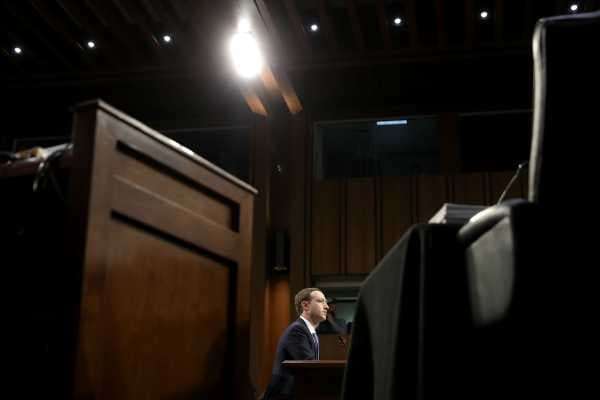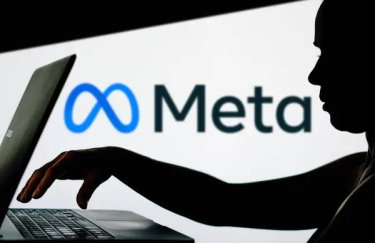
Facebook revealed on Tuesday that it has removed about 650 pages, groups, and accounts it determined are part of a coordinated disinformation campaign out of Russia — and Iran.
The Menlo Park, California-based company said that it has scrapped 652 fake accounts and pages that targeted Facebook users in the United States, United Kingdom, Latin America, and the Middle East. Facebook said that it undertook four separate investigations into aspects of the suspicious activity, three of which were related to Iran, and the fourth to Russian military intelligence services. The Iranian and Russian campaigns were unrelated, Facebook CEO Mark Zuckerberg said in a call with reporters on Tuesday evening.
Zuckerberg said Facebook banned the fake accounts and announced the decision was “because authenticity matters, and people need to be able to trust the connections that they make on Facebook.”
This is the second time in less than a month that Facebook has identified and removed suspicious activity on its platform, and it comes amid concern that Russia and others are trying to disrupt the 2018 midterm elections. Facebook has stepped up enforcement as a result of those concerns, but it’s not clear whether any of the activity Facebook revealed Tuesday was specifically targeted at swaying the November contest in the US.
One of the investigations started with a tip from cybersecurity firm FireEye about a network called “Liberty Front Press” that Facebook eventually linked to Iranian state media. FireEye published an analysis of its findings and explained that it had uncovered an “influence operation” out of Iran. The operation, FireEye said, “is leveraging a network of inauthentic news site and clusters of associated accounts across multiple social media platforms to promote political narratives in line with Iranian interests.”
The narratives included anti-Saudi, anti-Israeli, and pro-Palestinian themes and support for pro-Iran policies in the US. The first accounts dated to 2013.
According to Facebook’s probe, “Liberty Front Press” had 74 pages, 60 accounts, and three groups on Facebook as well as 76 accounts on Instagram and some 155,000 followers. Facebook also identified about $6,000 in Facebook ads.
Facebook also identified links between “Liberty Front Press” and other pages and accounts — some of which posed as news organizations and engaged in cybersecurity attacks and hacking attempts, and others of which shared content about Middle East politics in Arabic and Farsi as well as political content in the UK and US in English.
Nathaniel Gleicher, head of cybersecurity policy at Facebook, said in a blog post that the company had shared what it found with the US and the UK governments and, in the US, the Treasury and State departments in light of US sanctions on Iran. “These sanctions allow companies to provide people internet services for personal communications, including the government and its affiliates,” he said. “But Facebook takes steps to prevent people in Iran and other sanctioned countries from using our ad tools.”
As for Russia, Facebook said that the company believes some of the recently identified bad actors are the same ones removed for cybersecurity attacks before the 2016 election, but this time around, they’re more focused on politics in Syria and Ukraine.
The problem isn’t just Russia
National security adviser John Bolton in a Sunday interview on ABC’s This Week warned that Russia wasn’t the only country to look out for on potential interference campaigns in the United States. He also pointed to China, North Korea, and Iran.
“I can say definitively that it’s a sufficient national security concern about Chinese meddling, Iranian meddling, and North Korean meddling that we’re taking steps to try and prevent it,” Bolton told anchor Martha Raddatz. “So all four of those countries, really.”
James Lewis, a cybersecurity expert at Washington think tank the Center for Strategic and International Studies, told Vox’s Alex Ward that Iran “may be tempted [to] try something” as “payback” for Trump pulling the US out of the Iran nuclear deal.
Facebook said on Tuesday that the “Liberty Front Press” accounts began to increase their focus on the US and the UK in 2017. FireEye’s report says that among the pro-Iran policies the accounts pushed was support for the US-Iran nuclear deal.
As Ward notes, Iran, starting in 2011, attacked more than 40 American banks, including JPMorgan Chase and Bank of America.
Sen. Mark Warner (D-VA), vice chair of the Senate Select Committee on Intelligence, said in a statement reacting to Facebook’s announcement that it was “further evidence that foreign adversaries are actively using social media to divide Americans and undermine our democratic institutions.”
Warner continued: “I’ve been saying for months that there’s no way the problem of social media manipulation is limited to a single troll farm in St. Petersburg, and that fact is now beyond a doubt. We also learned today that the Iranians are now following the Kremlin’s playbook from 2016.”
Representatives from Facebook, Twitter, and Google will head to Capitol Hill on September 5 for a hearing to answer questions about social media manipulation and interference from Russia — and, apparently, other countries as well.
Sourse: vox.com





